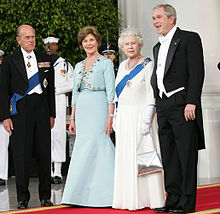Cultura occidentală
Aspect

Cultura occidentală este extinderea și dezvoltarea culturii Europei în teritoriile denumite generic „lumea occidentală”. Rădăcinile culturii occidentale sunt civilizația greco-romană și creștinismul occidental.[1][2][3][4][5][6][7][8][9]
Note
[modificare | modificare sursă]- ^ Hanson, Victor Davis (). Carnage and Culture: Landmark Battles in the Rise to Western Power (în engleză). Knopf Doubleday Publishing Group. p. "the term "Western" — refer to the culture of classical antiquity that arose in Greece and Rome; survived the collapse of the Roman Empire; spread to western and northern Europe; then during the great periods of exploration and colonization of the fifteenth through nineteenth centuries expanded to the Americas, Australia and areas of Asia and Africa; and now exercises global political, economic, cultural, and military power far greater than the size of its territory or population might otherwise suggest.". ISBN 978-0-307-42518-8.
- ^ Spielvogel, Jackson J. (). Western Civilization (în engleză). Wadsworth. p. people in these early civilizations viewed themselves as subjects of states or empires, not as members of Western civilization. With the rise of Christianity during the Late Roman Empire, however, peoples in Europe began to identify themselves as part of a civilization different from others, such as that of Islam, leading to a concept of a Western civilization different from other civilizations. In the fifteenth century, Renaissance intellectuals began to identify this civilization not only with Christianity but also with the intellectual and political achievements of the ancient Greeks and Romans. Important to the development of the idea of a distinct Western civilization were encounters with other peoples. Between 700 and 1500, encounters with the world of Islam helped define the West. But after 1500, as European ships began to move into other parts of the world, encounters with peoples in Asia, Africa, and the Americas not only had an impact on the civilizations found there but also affected how people in the West defined themselves. At the same time, as they set up colonies, Europeans began to transplant a sense of Western identity to other areas of the world, especially North America and parts of Latin America, that have come to be considered part of Western civilization. ISBN 978-0-534-64602-8.
- ^ Sharon, Moshe (). Studies in Modern Religions, Religious Movements and the Båabåi-Bahåa'åi Faiths (în engleză). BRILL. p. Side by side with Christianity, the classical Greco-Roman world forms the sound foundation of Western civilization. Greek philosophy is also the origin for the methods and contents of the philosophical thought and theological investigation in Islam and Judaism. ISBN 978-90-04-13904-6.
- ^ Pagden, Anthony (). Worlds at War: The 2,500 - Year Struggle Between East and West (în engleză). OUP Oxford. p. Had the Persians overrun all of mainland Greece, had they then transformed the Greek city-states into satrapies of the Persian Empire, had Greek democracy been snuffed out, there would have been no Greek theater, no Greek science, no Plato, no Aristotle, no Sophocles, no Aeschylus. The incredible burst of creative energy that took place during the fifth and fourth centuries B.C.E. and that laid the foundation for all of later Western civilization would never have happened. [...] in the years between 490 and 479 B.C.E., the entire future of the Western world hung precariously in the balance. ISBN 978-0-19-923743-2.
- ^ Cartledge, Paul (). The Greeks: A Portrait of Self and Others (în engleză). OUP Oxford. p. "Greekness was identified with freedom-spiritual and social as well as political-and slavery was equated with being barbarian, [...] 'democracy' was a Greek invention (celebrating its 2,500th anniversary in 1993/4) [...] an ancient culture, that of the Greeks — is both a foundation stone of our own (Western) civilization and at the same time in key respects a deeply alien phenomenon.". ISBN 978-0-19-157783-3.
- ^ Freeman, Charles (septembrie 2000). The Greek Achievement: The Foundation of the Western World (în engleză). Penguin Publishing Group. p. The Greeks provided the chromosomes of Western civilization. One does not have to idealize the Greeks to sustain that point. Greek ways of exploring the cosmos, defining the problems of knowledge (and what is meant by knowledge itself), creating the language in which such problems are explored, representing the physical world and human society in the arts, defining the nature of value, describing the past, still underlie the Western cultural tradition. ISBN 978-0-14-029323-4.
- ^ Richard, Carl J. (). Why We're All Romans: The Roman Contribution to the Western World (în engleză). Rowman & Littlefield Publishers. p. In 1,200 years the tiny village of Rome established a republic, conquered all of the Mediterranean basin and western Europe, lost its republic, and finally, surrendered its empire. In the process the Romans laid the foundation of Western civilization. [...] The pragmatic Romans brought Greek and Hebrew ideas down to earth, modified them, and transmitted them throughout western Europe. [...] Roman law remains the basis for the legal codes of most western European and Latin American countries — Even in English-speaking countries, where common law prevails, Roman law has exerted substantial influence. ISBN 978-0-7425-6780-1.
- ^ Grant, Michael (). The Founders of the Western World : A History of Greece and Rome. Internet Archive. New York : Scribner : Maxwell Macmillan International. ISBN 978-0-684-19303-8.
- ^ Perry, Marvin; Chase, Myrna; Jacob, James; Jacob, Margaret; Laue, Theodore H. Von (). Western Civilization: Since 1400 (în engleză). Cengage Learning. ISBN 978-1-111-83169-1.
